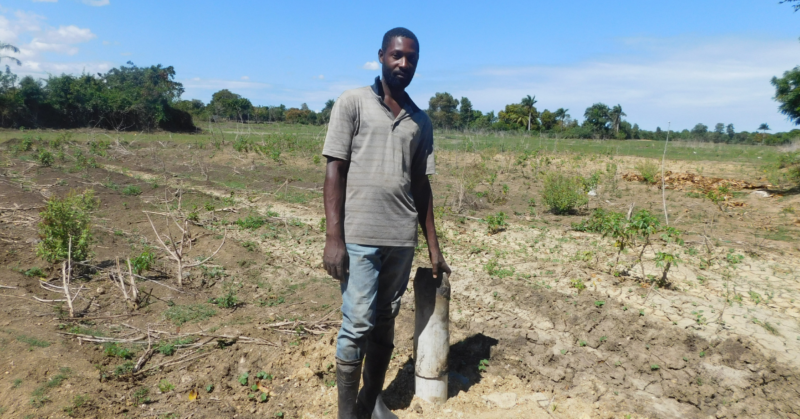Have you noticed that the costs of everyday items have skyrocketed lately? Food, gas, housing, and transportation prices are on the rise, and there’s no end in sight!
But even when inflation threatens to throw us into a panic, we can rest. And not only can we feel peace, but we can grow in gratitude. Here’s a 5-day study of Philippians 2 to help!
Day 1 – What if we already have everything we need?
In Philippians 1:11, Paul explains that we exist for “the glory and praise of God.” Our gifts, talents, personalities, resources, time, etc. are gifts to spend for God’s glory.
Then, in Philippians 2:1-4, Paul reminds us that we must also love our brothers and sisters in Christ sacrificially. Why? Because when we prioritize the needs of others over our own desires, we reflect Jesus’ character and build unity in the church. Selfishness, on the other hand, causes division in the church.
**Before you begin studying our passage, pray and ask God for understanding, wisdom, humility, and the desire to apply this passage to your life!
Read: Philippians 2 slowly and thoughtfully, at least two times.
Memory Verse: Pick one or two of your favorite verses from Philippians 2 and review them five times each day this week.
Day 2 – What does it say?
In Philippians 2, we see a picture of perfect submission, love, sacrifice—and truly living “for the glory and praise of God”—in the life of Jesus. More specifically, in the incarnation.
Before creation, before Adam and Eve even had a chance to eat the forbidden fruit, God the Father, God the Son, and God the Spirit had a plan. You see, they planned to create human beings to share in the fellowship they have always had together.
Unfortunately, Adam and Eve chose to listen to the serpent’s lie instead of obeying God, which allowed sin to infiltrate the world and separate us from God.
Knowing this beforehand, the Father, Son, and Spirit had a solution to the problem of sin. The Son of God would become human (and remain divine) and be born as a baby. He would live the perfect life we can’t, die a death we deserve, and rise from the dead to prove His payment for our sin was sufficient.
In Philippians 2:5-11, Paul captures the amazing truth of the incarnation and reminds us that Jesus gives us a perfect example of love, sacrifice, obedience, and living for God’s glory.
Slowly read Philippians 2. In your journal, please reflect on these questions:
- Write down at least 30 observations answering the questions: Who? What? When? Where? Why? How?
- Find repeated words. When you think about these repeated words, what themes emerge?
- What commands does Paul give us? [We will revisit these commands on Day 5.]
- How does Philippians 2:5-11 describe God? What does Philippians 2:12-16 say about you? What do verses 17-30 say about Paul?
Day 3 – What does it mean?
We may not be theologians who have studied these amazing truths in Philippians 2, but we have the indwelling Holy Spirit and He will help us understand what it means for our lives today! The bridge from Paul’s original audience to us today is the Bible study step called Interpretation. In this step, we try to find the timeless truth of the passage so we can apply it to our lives today.
Prayerfully read Philippians 2 again. In your journal, answer these questions:
- What does Philippians 2 say about God? People?
- How important is thanksgiving in Paul’s life?
- What is Paul’s purpose in life? Why?
- In your own words, write the timeless truth in Philippians 2.
Day 4 – How should we think?
Meditation. It’s certainly a buzzword today! Biblical meditation, however, has a very specific purpose: to focus our minds on God, His character and attributes, and to let His peace and joy permeate our minds. Meditation is also a time to sit quietly and listen to God.
Choose one verse from Philippians 2 to focus on.
Start your meditation time with prayer. In your journal, write down any insights you discovered.
Day 5 – What now?
It’s not enough to study the Bible, figure out what it means, and even memorize it. Truly, we must put what we learn into action!
Remember: God’s sacrificial love for us should produce in us gratitude and generosity. This has huge implications for how Christ-followers care for the poor; especially in the middle of global inflation.
Skyrocketing prices can cause feelings of fear and worry. But for most of us, we can adapt to inflation. We can cut costs, dip into savings, or even benefit from government programs.
However, for our poorest brothers and sisters in underdeveloped nations, this global trend feels like an unstoppable, monstrous tsunami wave that will burden more and more people under the weight of hunger and hopelessness.
- Review and reflect on Paul’s commands that you discovered on Day 2.
- How can you obey these commands as you seek to care for the poor in your neighborhood and around the world?
- In your journal, write down three practical ways you can care for the poor this week.
When we forget about our impoverished brothers and sisters throughout the world (when we don’t put their needs before our own), they feel forgotten and alone, and non-believers can’t see what God’s love looks like. Let’s make sure that doesn’t happen!





